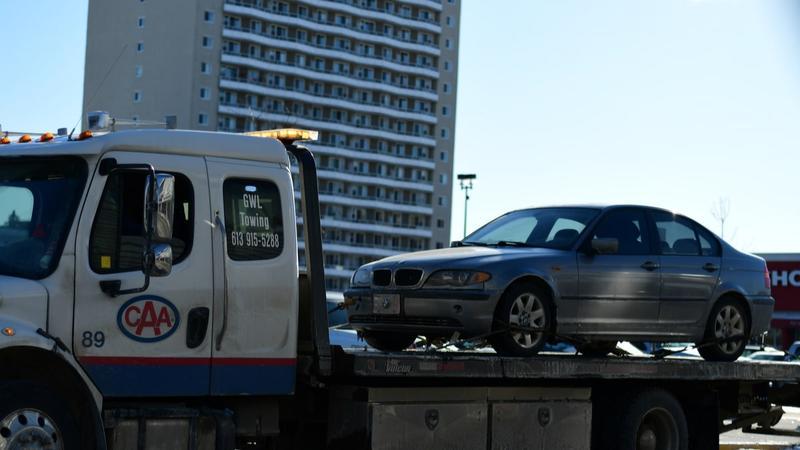Few things are as frustrating as your vehicle breaking down unexpectedly, and it always seems to happen at the worst time. Knowing you need to get a tow truck to haul your vehicle to a repair shop or dealership adds to the stress.
Motorists’ concerns about being overcharged and whether or not their auto insurance policies will cover the cost of a tow prompted the provincial government to take action.
Ontario’s Consumer Protection Act (2002) outlines what your rights are when hiring a tow truck. In 2017, the government added rules to regulate tow trucks and vehicle storage services, yet many Ontario drivers may not be aware of their rights when it comes to getting a tow.
In 2018, CAA Insurance published a straightforward version of what your towing rights are to help demystify the matter. Among your rights, you get to decide who can tow your vehicle and where, and tow and storage providers must reveal if they have an interest in a location or facility to which the vehicle is being towed to for repair, storage, or appraisal.
While these measures are helpful, the problem in Ontario is that tow truck regulation remains a municipal responsibility, not a provincial one. There’s a patchwork of licensing regulations, and in metro areas, tow trucks may require licensing from multiple jurisdictions. Currently, 17 of 444 municipalities in Ontario have bylaws in place to help regulate the towing industry.
What to Do If You Need a Tow
If you do find yourself in need of a tow, bear these things in mind:
- If you have a preferred tow operator, for example through a roadside assistance plan, call them. You are not required to use a “first-on-the-scene” tow. “Accident-chasing” tow trucks are at the heart of many scams — repair shops pay a bounty for cars, then overcharge to make up the “referral fee.” The province of Ontario is wrestling now with how to eliminate chasing, perhaps through contracts and rotation lists
- Some large municipalities (like Brampton, Hamilton, Mississauga, Toronto and Windsor) licence tow trucks. If you live in an area that does this, look for the municipal licence number on the truck before agreeing to be towed
- You have the right to choose where your car is towed (unless it’s necessary to go to a collision reporting centre). That includes getting it towed home, where an adjuster can assess the damage. It is a crime for a tow operator to recommend a body shop unless asked. Your insurer may have preferred body shops which are reputable and will offer guarantees
- If your car is drivable, you don’t necessarily need a tow
- Read carefully everything a tow truck driver asks you to sign
- If you can, snap a picture of your car as it is mounted on the tow truck to ensure you aren’t charged for services you didn’t receive, like dollies or winching
What to Do If Your Vehicle Has Been Towed
But what if you didn’t ask to be towed? It’s that nightmare scenario: You parked on the street, you took longer than you expected, return to your car and, as they say in Newfoundland: “There it was — gone.”
There are many reasons for impounding a car — driving with a suspended licence, impaired driving, a surfeit of unpaid parking tickets. For the sake of argument, you’re a law-abiding driver who lost track of time and didn’t see the low-hanging cloud of tow trucks waiting for four o’clock to chime. What to do?
While these instructions are specific to the Toronto area, other municipalities offer similar instructions:
- Call the police business line (not 911, unless it’s an emergency situation). Ask for (or navigate through the automated menus to) the communications dispatcher
- Have your licence plate number and last known location ready
- The dispatcher will tell you whether your car has been towed, who the towing company is, and the impound lot for which it’s destined
- Make arrangements to retrieve your car immediately. Towing is expensive, and impound fees add up quickly
Does My Auto Insurance Policy Cover Towing Expenses?
Being towed for illegal parking should not affect your car insurance premium — it’s not a moving violation. But if your car is impounded for reasons that would go on your driving record, that’s a different story.
If you’ve been in a collision for which you’re at fault and require a tow, your policy may cover you provided you have collision coverage or all-perils coverage (a combination of collision and comprehensive coverages). If you’re not at fault for the collision, the towing expense may be paid for under the no-fault coverage of your policy. Carefully review your policy and speak to your broker about its terms and conditions to be certain.
